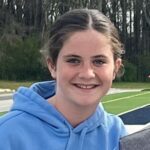Capital Fall Classic: ‘Mexicans don’t go to college, Coach’ – Triad Elite (N.C.) try to ‘break the cycle’
By Liviu Bird and Charles Boehm
RICHMOND, Va. – By winning the Capital Fall Classic U-17 Premier division last weekend, the Triad Elite Red ’96 boys team continued a strong run of form that saw them advance to a national final last summer, and booked themselves a spot in next March’s prestigious Jefferson Cup.
But the players’ off-field challenges magnify any on-field victory.
Triad Elite Soccer Club and ’96 boys coach Stef Hamilton took over the club in 2011 to serve underprivileged youth in the area around Winston-Salem, N.C. Much of the club, Hamilton’s team in particular, is of Hispanic descent, and 35 percent of its players participate on scholarship.
“The untapped potential is [immense],” Hamilton told SoccerWire.com at the Capital Fall Classic. “I went down to the barrios and looked around. Some of my friends said, ‘You’ve got to go down there. That’s where the ballers are.’
“So I went down there and found eight of these cats, and the rest of them recruited their friends. It just took off from there.”
The ’96 boys won the 2013 North Carolina Kepner Cup, outscored opponents 19-0 in the Region III tournament and only lost to NADO Select B16s (Coronado, Calif.) in the U.S. Youth Soccer Presidents Cup national final. (The Presidents Cup is one step below the U.S. Youth Soccer National Championship series.)
Triad Elite Red displayed both skill and grit at Capital Fall Classic, edging four quality opponents in four one-goal victories over two intense days of play to earn a priceless opportunity to showcase themselves in front of college scouts at next year’s Jeff Cup.
[ +Find more Capital Fall Classic coverage here ]
Yet despite his team’s success, Hamilton is quick to point out that soccer is tertiary on his list of goals for the club. Social awareness and education are his main points of emphasis, and soccer is more of a vehicle to tie at all together.
“This is just an extension of what we’re trying to do,” he said. “We’re trying to make the story — the story being: this is a bunch of underprivileged Latinos who don’t have a pot to p**s in. How can we make it? If somebody cared enough about them, what could happen? So that’s kind of what this is, this journey that we’re on.”
 Helped by Triad Elite’s strong connections to the Wake Forest University soccer programs, the club’s goal is to help players break the cycle of poverty many immigrants face in the United States. Hamilton played at Wake Forest, and technical director Ryan Martin is the Demon Deacons’ current men’s assistant coach.
Helped by Triad Elite’s strong connections to the Wake Forest University soccer programs, the club’s goal is to help players break the cycle of poverty many immigrants face in the United States. Hamilton played at Wake Forest, and technical director Ryan Martin is the Demon Deacons’ current men’s assistant coach.
“When we started the club and jumped into it, none of these kids really had the ambition to go on and play in college, and none of them really knew there was a different level outside of what they were doing,” Martin said in a phone interview from the Wake soccer office.
“There wasn’t a real emphasis on getting [good] grades and making sure things are lined up that way; it was kind of, just go to school because they had to do it. Now, it’s given a little light at the end of the tunnel for a lot of these guys.”
Martin said the players’ grades have improved, as evidenced by the transcripts the club periodically asks to see to ensure progress. Several players maintain high enough grade-point averages to apply for academic scholarships.
Attending Wake Forest matches as a club also gives them insight into the world they could step into that most of them could not see before joining Triad Elite.
[ +A game worth living for: Santa Maria Rivera’s story ]
“The kids are really going after it,” Martin said. “I think they’re ambitious guys, and now … they can kind of see that there is a path for them, that they can go to college, and they’ve got that belief.”
Several players joined a program at a local church that provides homework help for students for whom English is a second language. Students whose parents don’t speak English and cannot help them with their homework find help not only from adults, but also from peers who are in a similar situation.
Gaining the players’ and parents’ trust was the most difficult part of the process, Martin said. Once they realized that the coaches actually wanted to help, even to the extent of picking players up from their homes to take them to training sessions and games or taking them to college matches, they bought in.
 “It’s a three-pronged path: a little social awareness, give something back, soccer, and then everything else will fall in line — again, keeping them off the streets,” Hamilton said. “We’re just the soccer team with a weird mission. What I really want for them is one or two of them, even three of them, to go to college and break the cycle.”
“It’s a three-pronged path: a little social awareness, give something back, soccer, and then everything else will fall in line — again, keeping them off the streets,” Hamilton said. “We’re just the soccer team with a weird mission. What I really want for them is one or two of them, even three of them, to go to college and break the cycle.”
The partnership to help Triad players reach their goals spans all of Winston-Salem. Martin brings Wake Forest into it. Several sponsors help underwrite the team, including State Farm, where Hamilton works as an insurance agent by day.
Hamilton said a common refrain when he took over the club was, “Mexicans don’t go to college, Coach.”
Now, as players who were younger when the club began start to reach the recruitment phase, that paradigm has shifted.
“That’s kind of the duty of the club, and I think that’s something that was very exciting to me,” Martin said. “There are just so many people out there trying to help these kids and show them. For me, it’s a very rewarding and unique opportunity that I’m fortunate to be a part of.
“I just haven’t seen different environments like this in youth soccer, so it’s refreshing.”
As the immigrant population in Winston-Salem grows, Hamilton tries to make sure the club’s story is less about the sport and more about helping children toward better life opportunities.
As he puts it: “It’s deeper than just a bunch of guys playing soccer.”











